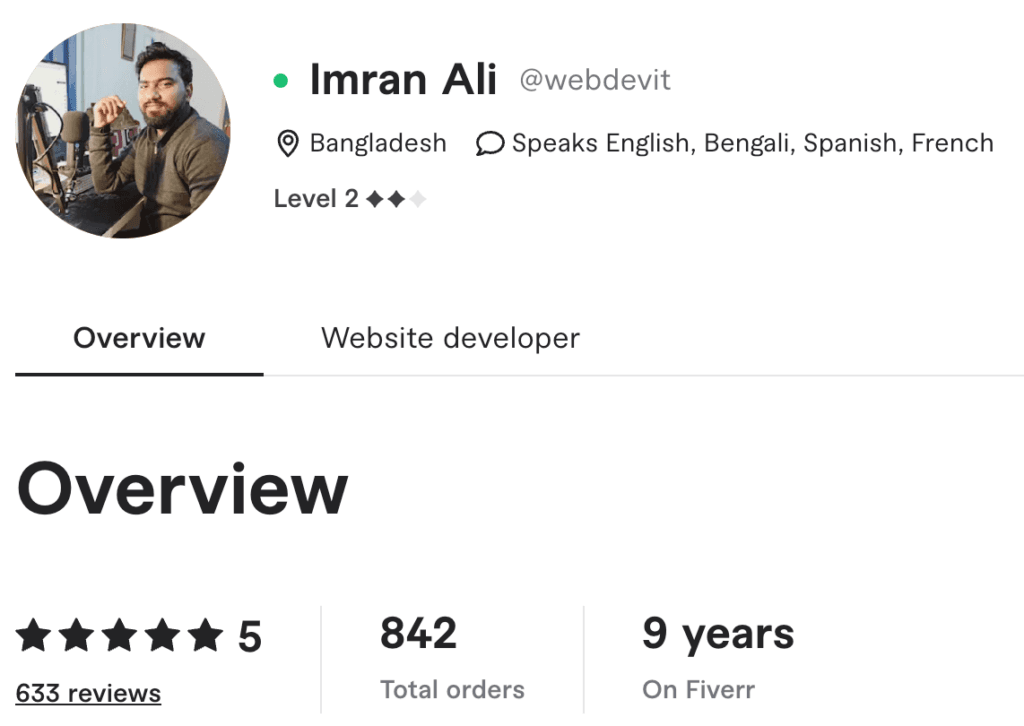
Why Speed Matters for a Website to Rank on Google
 Writen by
Writen by- CategoryUncategorized
- Published DateNovember 17, 2024
Website speed is more crucial than ever before in 2025. It’s not just about providing a good user experience anymore; website speed is a critical ranking factor for Google. If your website takes too long to load, you’re not only frustrating your visitors but also hurting your chances of ranking higher in search results. In this blog post, we’ll dive into why website speed matters for Google rankings and how you can improve it.
Google’s Core Web Vitals and Search Ranking
In 2020, Google introduced Core Web Vitals, a set of metrics that directly measure user experience. These metrics include loading performance, interactivity, and visual stability. Google has stated that these metrics play an essential role in determining how well a site ranks.
- Largest Contentful Paint (LCP) measures how long it takes for the largest visible content element to load.
- First Input Delay (FID) measures the time it takes for the page to become interactive.
- Cumulative Layout Shift (CLS) measures how stable the page content is as it loads.
A website that scores poorly on these metrics may find itself struggling to rank high in search engine results, even if it has high-quality content.
User Experience and Engagement
Google’s primary goal is to serve the best possible results to its users. If a website is slow to load, users are likely to leave and go to a competitor’s site. High bounce rates and low engagement signals, such as short session durations, are red flags to Google that users are dissatisfied. This can lead to lower rankings.
On the other hand, a fast-loading website provides a seamless user experience, encouraging visitors to stay longer, explore more pages, and return in the future. Positive user engagement signals, like longer sessions and repeat visits, are beneficial for improving search rankings.
Mobile Users and Page Speed
Mobile traffic now accounts for more than half of all global website traffic. Google uses mobile-first indexing, meaning it predominantly uses the mobile version of a site to determine its ranking. Mobile users are especially sensitive to slow load times because they may be using cellular data or have limited connectivity.
A mobile-friendly, fast-loading site is critical for providing a smooth experience to users on mobile devices and helps ensure your site ranks well for both mobile and desktop searches.
Conversion Rates and Revenue
Website speed doesn’t just affect SEO—it also impacts your conversion rates. A faster website leads to quicker decision-making by visitors, which translates to higher conversion rates. Studies have shown that even a 1-second delay in page load time can result in a significant drop in conversions. This is especially important for e-commerce websites, where fast page loads can mean the difference between a completed purchase and an abandoned cart.
How Google Measures Website Speed
Google uses tools like Google PageSpeed Insights, Google Search Console, and Chrome User Experience Report to measure website speed and performance. These tools provide insights into how well your site is performing and suggest areas for improvement. The faster your website loads, the better your chances of ranking higher.
How to Improve Website Speed for Better Google Rankings
Improving your website speed requires a few key steps, many of which are simple but effective:
- Optimize images: Compress large image files without compromising quality to improve load times.
- Minify CSS, JavaScript, and HTML: Reducing the size of these files can significantly speed up page loading.
- Use a Content Delivery Network (CDN): CDNs store copies of your website across multiple locations, reducing latency and speeding up loading times for global users.
- Enable caching: Browser caching allows visitors to load your site faster by storing static files locally.
- Use lightweight themes and plugins: Opt for fast-loading themes and keep plugins to a minimum.
- Choose fast hosting: The quality of your hosting can make a significant difference in website performance.
In a world where online attention spans are shrinking and user experience is paramount, website speed is no longer a nice-to-have; it’s a must-have. Fast-loading websites not only provide a better user experience but also have a higher chance of ranking well on Google. By improving your website’s speed, you’re investing in better SEO performance, happier users, and ultimately, more conversions.
So, if you want your website to stand out in Google’s search results and outperform your competition, make website speed a top priority today!
© 2024 | Alrights reserved by Ali Imran
